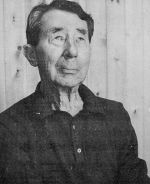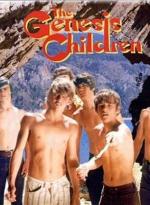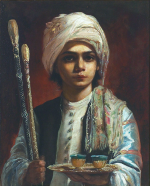Template:Did you know: Difference between revisions
From BoyWiki
No edit summary |
No edit summary |
||
| Line 1: | Line 1: | ||
[[File:Michael Davidson (journalist).jpg|150px|right|link=Michael Davidson]] | |||
* … that [[Michael Davidson|Michael Childers Davidson]] (1897–1975) was a British journalist, memoirist, and an open pederast. He "was an English foreign correspondent widely respected for his intelligence, keen observation and sympathy for the underdog. | |||
{{clr}} | |||
[[File:The genesis children.jpg|150px|right|link=The Genesis Children (film)]] | [[File:The genesis children.jpg|150px|right|link=The Genesis Children (film)]] | ||
* … that ''' [[The Genesis Children (film)|The Genesis Children]]''' is a film directed by Anthony Aikman and produced by [[Billy Byars, Jr.]] of [[Lyric International]], features eight of the Lyric boys. The film takes them on a surreal non-linear journey from an international school in Rome to a beach where they abandon the trappings of civilization, romping nude on the sand. | * … that ''' [[The Genesis Children (film)|The Genesis Children]]''' is a film directed by Anthony Aikman and produced by [[Billy Byars, Jr.]] of [[Lyric International]], features eight of the Lyric boys. The film takes them on a surreal non-linear journey from an international school in Rome to a beach where they abandon the trappings of civilization, romping nude on the sand. | ||
| Line 5: | Line 8: | ||
* … that '''[[(Boylove Documentary Sourcebook) - A Defense of the Biographical Reputation of İshak Çelebi through His Portrayal as a Chaste Pederast in an Anecdote from 'The Essence of History' by Gelibolulu Mustafa 'Âlî|A Defense of the Biographical Reputation of İshak Çelebi through His Portrayal as a Chaste Pederast in an Anecdote from 'The Essence of History' by Gelibolulu Mustafa 'Âlî]]''' is from "Naming the Beloved in Ottoman Turkish Gazel: The Case of İshak Çelebi (D. 1537/8)" by Selim S. Kuru, in Ghazal as World Literature II: From a Literary Genre to a Great Tradition. | * … that '''[[(Boylove Documentary Sourcebook) - A Defense of the Biographical Reputation of İshak Çelebi through His Portrayal as a Chaste Pederast in an Anecdote from 'The Essence of History' by Gelibolulu Mustafa 'Âlî|A Defense of the Biographical Reputation of İshak Çelebi through His Portrayal as a Chaste Pederast in an Anecdote from 'The Essence of History' by Gelibolulu Mustafa 'Âlî]]''' is from "Naming the Beloved in Ottoman Turkish Gazel: The Case of İshak Çelebi (D. 1537/8)" by Selim S. Kuru, in Ghazal as World Literature II: From a Literary Genre to a Great Tradition. | ||
{{clr}} | {{clr}} | ||
<div style="text-align: right;" class="noprint">'''[[Special:Newpages|BoyWiki's new and recently improved articles]] {{puce}} [[BoyWiki:New and recently improved articles nominations|Nominate an article]] ...'''</div> | <div style="text-align: right;" class="noprint">'''[[Special:Newpages|BoyWiki's new and recently improved articles]] {{puce}} [[BoyWiki:New and recently improved articles nominations|Nominate an article]] ...'''</div> | ||
<noinclude> [[Category:Main page templates]] </noinclude> | <noinclude> [[Category:Main page templates]] </noinclude> | ||
Revision as of 14:44, 31 August 2022

- … that Michael Childers Davidson (1897–1975) was a British journalist, memoirist, and an open pederast. He "was an English foreign correspondent widely respected for his intelligence, keen observation and sympathy for the underdog.

- … that The Genesis Children is a film directed by Anthony Aikman and produced by Billy Byars, Jr. of Lyric International, features eight of the Lyric boys. The film takes them on a surreal non-linear journey from an international school in Rome to a beach where they abandon the trappings of civilization, romping nude on the sand.

- … that A Defense of the Biographical Reputation of İshak Çelebi through His Portrayal as a Chaste Pederast in an Anecdote from 'The Essence of History' by Gelibolulu Mustafa 'Âlî is from "Naming the Beloved in Ottoman Turkish Gazel: The Case of İshak Çelebi (D. 1537/8)" by Selim S. Kuru, in Ghazal as World Literature II: From a Literary Genre to a Great Tradition.